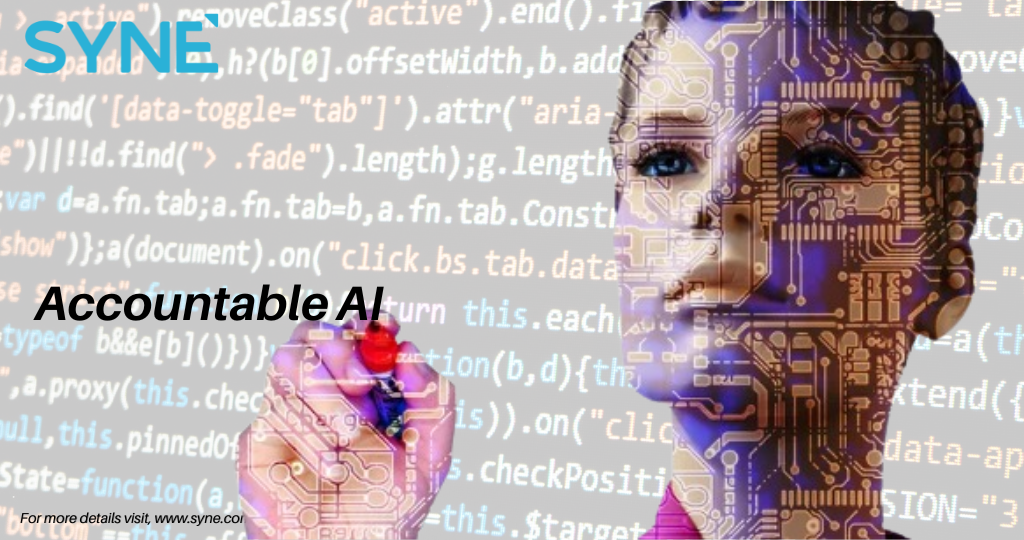Accountable AI - the Road to Responsible Development
Technology
CREATED
27 Jun 2023
www.syne.com/story/accountable-ai-the-ro...
While it is agreed that Artificial Intelligence (AI) has the potential to revolutionize our world, bringing numerous benefits and advancements, it must be acknowledged that ethical concerns arise from its deployment. With advancement of AI at breakneck speeds, it is imperative to address the ethical concerns surrounding its development and deployment. Let’s explore some of the key ethical concerns and the importance of addressing them to ensure responsible AI development.
Bias and Fairness
AI systems heavily rely on data for their training, and if this data is biased or reflects existing prejudices, the AI algorithms can perpetuate and amplify these biases, raising concerns about fairness in areas such as hiring practices, loan decisions, and criminal justice. There is a need for developers to prioritize diverse and representative datasets, regularly assess for biases, and implement robust fairness measures to ensure equitable outcomes.
Privacy and Surveillance
AI's data-driven nature requires vast amounts of personal information, raising concerns about privacy and surveillance. Striking the right balance between data utilization and protecting individuals' privacy is crucial. Developers and policymakers must implement strict data protection regulations, enforce transparency regarding data usage, and prioritize informed consent.
Autonomy and Accountability
As AI systems become more autonomous, questions arise about accountability for their actions. Determining responsibility can be challenging when AI systems make mistakes, cause harm, or engage in unethical behaviour. Clear frameworks and guidelines are needed to establish accountability, ensuring that developers, manufacturers, and users are accountable for the actions and outcomes of AI systems.
Employment Disruption
AI's potential to automate tasks raises concerns about job displacement and socioeconomic impact. It is crucial to proactively address this issue by fostering reskilling and upskilling programs, promoting the creation of new job opportunities that complement AI, and developing policies to mitigate adverse impacts on workers.
Transparency and Explain ability
AI algorithms often operate as "black boxes," making it difficult to understand and explain their decision-making processes. Lack of transparency undermines trust and raises concerns about biased or unfair outcomes. Developers should prioritize building explainable AI systems, enabling users to understand the reasoning behind decisions made by AI and fostering trust and accountability.
Social Impact
AI has wide-ranging societal implications, including shifts in power dynamics and the concentration of resources. It is crucial to consider the broader social impact of AI deployments, ensuring that the benefits are distributed equitably and that vulnerable communities are not disproportionately affected. Ethical considerations should guide decision-making processes to prevent unintended negative consequences.
By proactively tackling issues such as bias, privacy, accountability, employment disruption, transparency, and social impact, we can shape AI technologies that align with human values and promote a fair and just society. Collaboration among researchers, policymakers, industry leaders, and society as a whole is vital to navigate the path towards responsible AI development, maximizing its potential while mitigating its risks.




View Comments